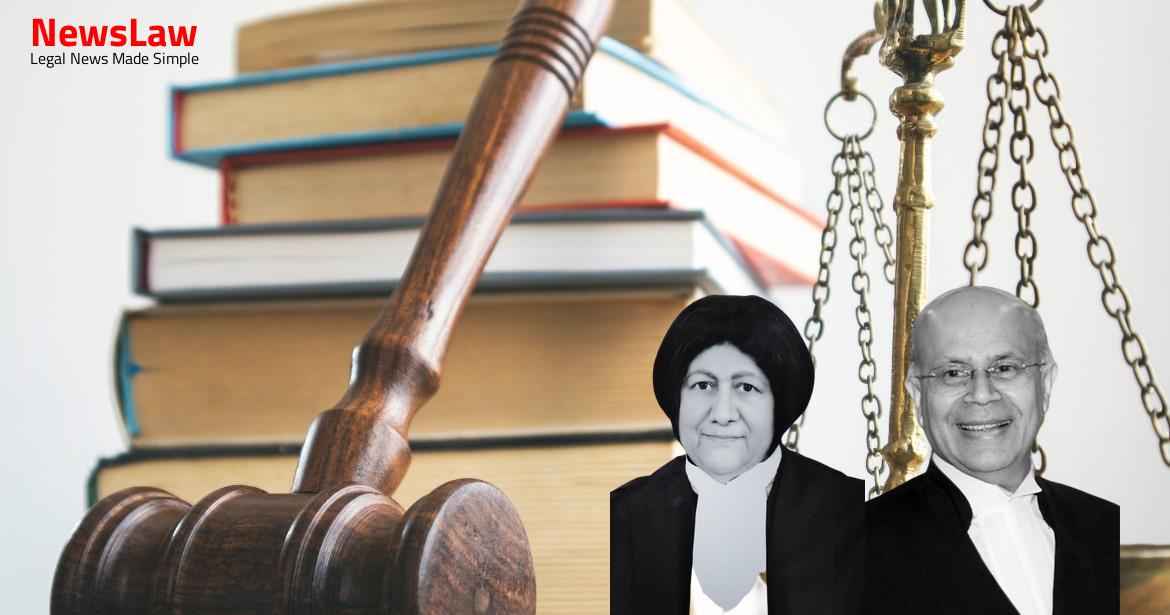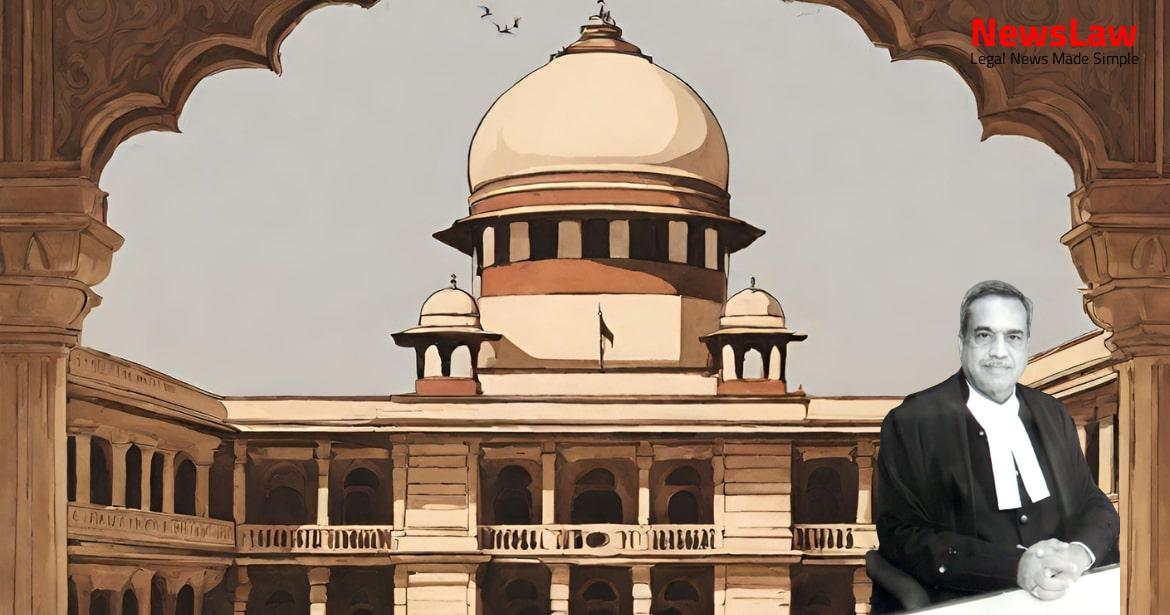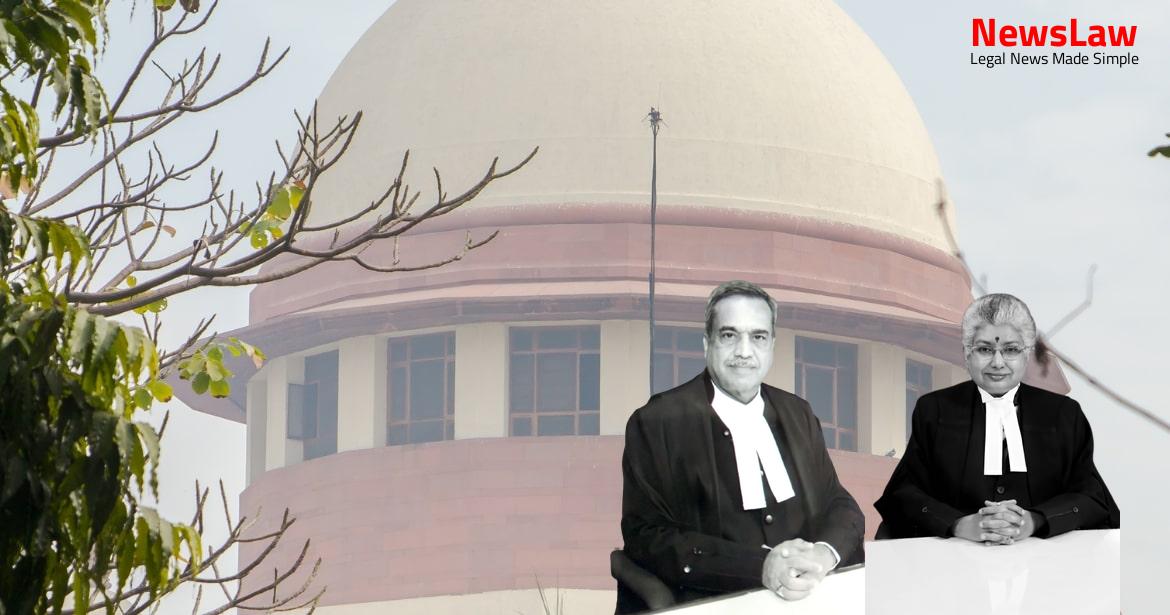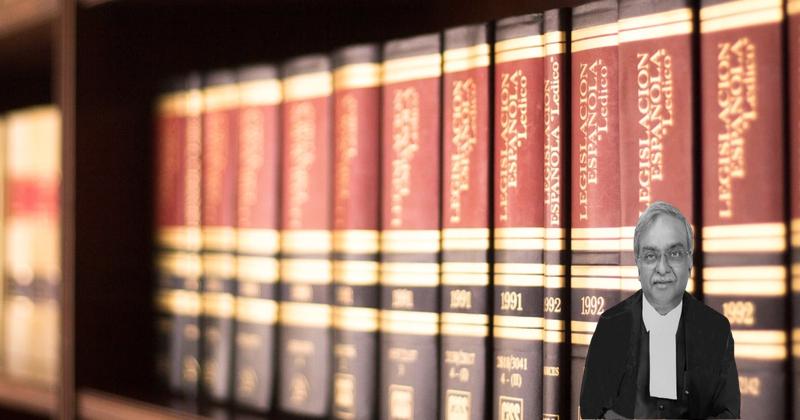Explore a recent court judgment that delves into the complexities of offenses under IPC sections and the procedural nuances of the CrPC. The Court’s legal analysis emphasizes the significance of following the prescribed provisions accurately, ensuring justice and fair proceedings. Discover the detailed examination of the case’s legal aspects in the broader legal framework.
Facts
- The Appellants filed criminal complaints against the Respondents under Section 340 read with Section 195 of the CrPC for offences under Sections 191 and 192 of the IPC.
- The complaints were converted into private complaints by the Judicial Magistrate, who then issued process under Sections 191, 192, and 193 of the IPC.
- Writ petitions filed by the Appellants against the conversion of complaints proved unsuccessful, as the High Court dismissed them.
- The Appellants alleged that the Respondents had given false evidence, forged documents, and made false entries in accounts.
- The Respondents filed revision applications stating that the bar in Section 195(1)(b)(i) and mandatory procedure under Section 340 CrPC needed to be followed.
- Appellants later claimed offences under additional sections of the IPC, arguing that private complaints were maintainable.
- Despite no challenge to the process being issued under IPC sections, the complaints were quashed by the Court for not being filed before the appropriate Court.
- Additional Sessions Judge in Mapusa rendered a judgment on 05.03.2013.
- The judge stated that the bar under Section 195(1)(b)(i) of the CrPC was applicable.
- It was mentioned that provisions under Section 340 of the CrPC were mandatory and needed to be followed.
Also Read: Legal Analysis on Physical Ability in Rape Case
Issue
- The primary issue for consideration is whether the facts in the complaint disclose an offence under Section 193 of the Indian Penal Code (IPC).
Also Read: Legal Analysis on Admissions and Document Consideration in Insolvency Case
Arguments
- Shri Anil Kumar Mishra, the advocate for the Appellants, heavily relied on the case of Iqbal Singh Marwah to argue that the documents were forged before being presented as evidence in court, making a private complaint maintainable.
- He criticized the High Court for not considering the possibility of issuing process for other offenses, citing a judgment that the High Court should have used its Section 482 powers if injustice was found.
- The mention of the Surjit Singh case in the impugned judgment was deemed faulty by Mishra, as it had been overruled in Iqbal Singh Marwah.
- The withdrawal of Suit No.1/2003/A was attributed to the fraudulent creation of debit notes by the Respondents to support their claims against the Appellants.
- Mishra highlighted that the offenses of forgery under the IPC were clearly established, which could be addressed through a private complaint without following the procedure outlined in Section 340 CrPC.
- Mishra reiterated the relevance of Iqbal Singh Marwah to the case, emphasizing that the offense was committed before the document became ‘custodia legis.’
- Respondent contended that the counter-affidavit relied upon by the Appellants was an afterthought to support a weak case.
- Cited judgments following Iqbal Singh Marwah, stating its applicability to cases under both Section 195(1)(b)(i) and Section 195(1)(b)(ii) of the CrPC.
- Argued that incorrect sections in a process issuance can be corrected at the charge framing stage under Section 211 of the CrPC and charges can be altered under Section 216.
- Mentioned Section 460(e) of the CrPC allowing condonation of irregularities in proceedings after process issuance.
- Asserted that complaints were correctly registered as private complaints and should continue as such.
- Argued the correct filing of complaints under Section 195 read with Section 340 CrPC, mentioning pending suits and application for conversion of complaints.
- Claimed that the debit notes central to the Appellants’ case did not amount to forgery under IPC Sections 463 and 464, as they were made on the proprietor’s letterhead with the appropriate authorization.
- Stated that forgery sections of the IPC do not apply to the complaints filed under Section 195 read with Section 340 of the CrPC, invalidating reliance on Surjit Singh case by the Appellants.
- Referenced the case Ram Dhan v. State of U.P. & Anr. in support of the argument.
- Quoted Somasundaram, J.’s observation in another case regarding the necessity of a court complaint for an offense under Section 193 IPC under Section 195(1)(b) of the CrPC.
Also Read: Analysis of Transfer of Winding Up Proceedings to NCLT
Analysis
- The Court discussed the distinction between offences under Sections 191 and 192 of the IPC and the “forgery” sections of the IPC.
- It emphasized the importance of following the provisions of Section 195 of the CrPC and not evading them by mislabeling offences.
- The Court noted that the complaints in the case correctly invoked Section 195 with Section 340 of the CrPC and that attempting to convert them into private complaints was not appropriate.
- The judgment in the case was in line with the broader scheme of Section 195 of the CrPC, highlighting three distinct categories of offences.
- Section 195 of the CrPC deals with offences related to giving false evidence or fabricating false evidence in judicial proceedings.
- Section 340 of the CrPC outlines the procedure for taking action in cases where offences under Section 195 have been committed.
- The Court must make a preliminary inquiry, record a finding, and then make a written complaint to send to the relevant Magistrate.
- The offences of forgery and fabricating false evidence for use in judicial proceedings are distinct.
- Section 464 of the IPC defines the different types of forgery, including making false documents and fabricating false evidence.
- The purpose of Section 195 is to prevent frivolous or revengeful criminal prosecutions and ensure justice.
- Section 341 allows for appeals in cases where a Court refuses to make a complaint under Section 340.
- The Court must ensure that the conditions of Section 195 are met before taking cognizance of an offence.
- Offences under Section 195(1)(b)(i) and (ii) are distinct and have specific requirements for prosecution.
- Fabrication of false evidence must have the intention to impact the outcome of a judicial proceeding.
- Section 195(1)(b)(ii) of the CrPC is attracted only when the offenses enumerated have been committed with respect to a document after it has been produced or given in evidence in a proceeding in any court (i.e., during custodia legis)
- Forgery must take place while the document is in custodia legis for Section 195(1)(b)(ii) to apply
- Cases falling under Section 195(1)(b)(ii) do not include offenses committed outside the court premises
- The offense punishable under Sections 463 and 464 of the IPC require specific elements such as the document being made by or under the authority of a person who knows it was not made by that authority
- Forging a document before it is filed in court does not trigger the Section 195(1)(b)(ii) provision
- Interpretation of ‘relating to’ in legal contexts is broad and includes both direct and indirect significances depending on the context
- Suppression of material facts and abuse of court process can lead to dismissal of a petition or case
- Shri Mishra’s assertion that serious offences under Sections 191 and 192 of the IPC were made out but the complaints were quashed is deemed valid.
- The order of conversion and subsequent issuing of process on a private complaint may not have been correct.
- The complaints should have been reverted to their original state before conversion by the Additional Sessions Judge after the Magistrate’s order was set aside.
Case Title: M/S BANDEKAR BROTHERS PVT.LTD. Vs. PRASAD VASSUDEV KENI (2020 INSC 531)
Case Number: Crl.A. No.-000546-000550 / 2017



